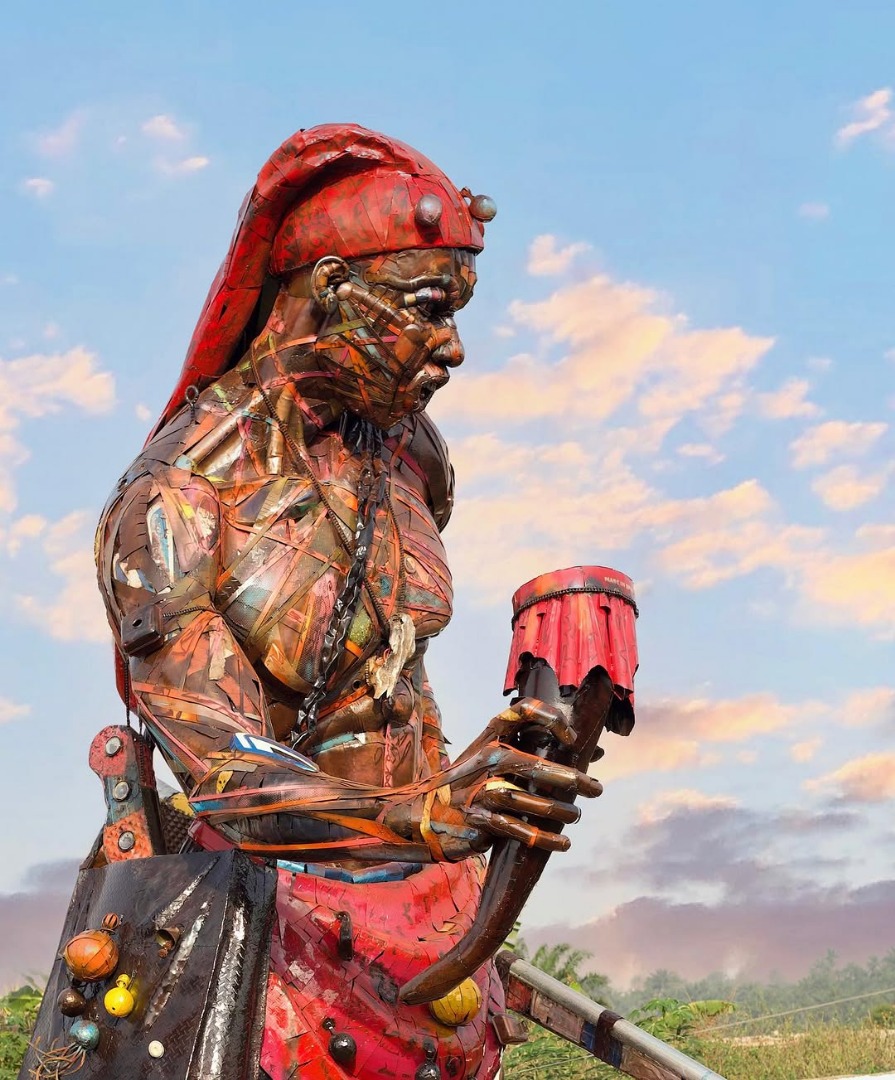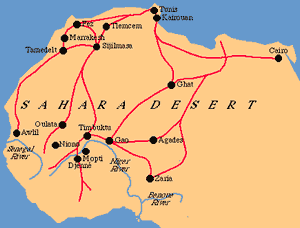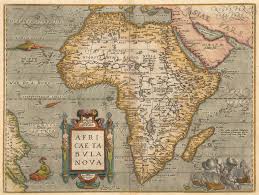Life and Legacy of Bashorun Ogunmola, 19th-century Ibadan Warrior

Life and Legacy of Bashorun Ogunmola, 19th-century Ibadan Warrior
Explore the life and controversial legacy of Bashorun Ogunmola, a legendary 19th-century Ibadan warrior whose military campaigns and ruthless governance shaped the powerful Yoruba city-state.
Early Life and Background of Bashorun Ogunmola
Basorun (Bashorun) Ogunmola was born in the town of Ifesusu (Alawe compound) near Iwo in present-day Osun State. Trained as an Ifá priest, he spent his youth traveling between Yoruba towns performing divination and rituals. In the mid-1800s, he arrived at Ibadan (then called Eba, Odan) on such priestly business. According to tradition, the Ibadan leaders offered him only the outlying “boys’ quarters” to settle, but Ogunmola refused, insisting those quarters were for slaves. Instead, he chose to camp in the dense forest on a high hill, the future site of Mapo Hall. Local accounts say that there he built a makeshift shelter and famously tamed the wild animals (even a lion) that prowled the hill. (A stone lion statue now marks Mapo Hall’s Plaza in memory of that feat.) In this way, the former oracle priest began to establish his presence in Ibadan, preparing the ground for his later rise to power.
Rise to Power
Ogunmola’s military career advanced steadily as civil wars and conflicts swept Yorubaland after the collapse of the old Oyo Empire. He aligned himself with Ibadan’s war chiefs (like Iba Oluyole, Balogun Ibikunle, and Chief Oderinlo) and gained renown as a skilled warrior. By the 1860s, he was participating in virtually every major campaign mounted by Ibadan’s armies. Oral accounts and local histories credit him with extraordinary success: Ogunmola is said to have “led and won twenty-one out of the twenty-three wars he fought”. This string of victories bolstered his prestige. After the decisive victory over the rebel Ijaye forces (described below), he was elevated to the title of Basorun (the equivalent of Commander, in, Chief) of Ibadan between 1865 and 1867. In practical terms, Basorun Ogunmola effectively served as Ibadan’s war, leader and second, in, command to the Olubadan (the town’s king). His political influence also grew: colonial records note that Ogunmola maintained friendly ties with the British authorities (e.g., with Governor William Carter) and even supported the introduction of Christianity in Ibadan during this period.
Major Wars and Political Alliances
Ogunmola’s era was one of near-constant warfare among Yoruba states. He fought in almost all the major inter, tribal conflicts of his time, helping to expand and defend Ibadan’s influence. His campaigns included wars against neighboring Egba (present-day Abeokuta) and Ijebu (Ijebu Ode), as well as participation in the protracted Ekiti, Parapo (Kiriji) War of the 1870s–1880s. For example, Ibadan-led forces under Ogunmola’s command invaded Egba territory in the early 1860s and fended off Ijebu incursions. He also aided the Ibadan coalition in multiple raids into Ekiti and Ijesha lands during the Kiriji War. His willingness to work with other chiefs was noted: Balogun Ibikunle, the army commander of Ibadan, is recorded to have consulted Ogunmola and other chiefs when planning the war against Aare Kurunmi of Ijaye. Ultimately, Ogunmola’s battlefield successes cemented his reputation as one of Yorubaland’s foremost war chiefs.
- Ijaye War (c. 1860s): This was the climactic conflict with Ààrẹ Kurunmi of Ijaye (see next section). Ogunmola led the Ibadan warriors in the siege of Ijaye, which culminated in Kurunmi’s downfall.
- Kiriji War (Ekiti, Parapo, 1877–1893): A long civil war between a coalition of Ekiti, Ijesha, and other groups against Ibadan. Ogunmola fought in the early phase of this war on the Ibadan side, even though he died before its conclusion.
- Egba and Ijebu Wars: Ogunmola’s forces engaged the Egba (Abeokuta) in conflicts over trade and territory, and also checked Ijebu raiders in the Ogun River basin. (Local lore recalls Ogunmola personally leading expeditions against these states.)
- Other campaigns: Oral sources mention fights at Kutuje and Arakonga (less documented Yoruba battles), as well as raids in the Upper Osun/Igbajo region (on the border with Ijesha).
Throughout these wars, Ogunmola often cooperated with fellow Ibadan chiefs. He served alongside figures like Iba Oluyole and Balogun Ibikunle, forming the triumvirate of military leadership in mid-century Ibadan. By the late 1860s, his combination of spiritual authority (as an Ifa priest) and proven martial skill had made him the city’s undisputed war leader.
Conflict with Kurunmi
Ogunmola’s personal vendetta against Ààrẹ Kurunmi of Ijaye became the most famous episode of his career. In 1861, the Oyo Alaafin (King Atiba) had named his son Prince Agunloye Adelu as successor, breaking the old rule that an heir must die with his father. Kurunmi, who held the title of Aare, Ona, Kakanfo (Warlord Generalissimo), violently opposed this and seceded with his army at Ijaye. When Ibadan’s chief Balogun Ibikunle, informed the council of this crisis, Ogunmola advocated immediate war against Kurunmi. His motives were deeply personal: years earlier, Kurunmi had captured Ogunmola (in a different context) and cruelly tortured him, leaving a permanent grudge.
Shortly after Kurunmi’s rebellion, Ogunmola was traveling through the village of Olosa Oko when he discovered that Kurunmi’s favorite wife was barren. Using his Ifa priest skills, Ogunmola performed rituals that enabled her to conceive. When she became pregnant, Kurunmi should have rewarded Ogunmola, but instead, he repaid the favor with cruelty. Specifically, Kurunmi seized Ogunmola and bound him to a stake as a sacrifice to the god of iron (Ogún), forcing him to eat wood ash each day. For seven days, Ogunmola was held until the baby was safely delivered; only after the ordeal did Kurunmi’s wife secretly set him free.
Furious at this betrayal, Ogunmola led the Ibadan army to war. The resulting Ijaye War (1861–1867) saw brutal fighting around the Ijaye fortress. Ogunmola’s tactics and the manpower of allied forces (including the surrender of the Aare, O'ni, and Kakanfo titles by Atiba’s supporters) eventually prevailed. Kurunmi’s forces broke and scattered. Tradition holds that Kurunmi fled east along the Ose River in despair; he is said to have “disappeared” in that swampy river, after losing most of his family in battle. Ogunmola’s victory over Kurunmi made him Basorun of Ibadan by about 1865, and Ibadan imposed a heavy peace on Ijaye survivors. Only Kurunmi’s pregnant wife and young son were spared; they were allowed to escape and eventually settled in the Oke, Adu area of Ibadan. In Yoruba folk memory, Ogunmola’s triumph in this war is often cited as the pinnacle of his martial career.
Cultural and Political Legacy
Ogunmola’s legacy endures in Ibadan’s cultural landscape and collective memory. Modern Ibadan honors him with monuments and preserved heritage sites. In particular, a life-size bronze statue of Basorun Ogunmola stands in front of the historic Mapo Hall, the colonial-era city hall perched on Mapo Hill. Mapo Hall itself, designed in 1925 by British engineers, is regarded as a symbol of Ibadan’s authority and unity. Ogunmola’s statue, created in 2015 by sculptor Adejuyigbe Adetayo, depicts him in warrior’s garb and serves as a focal point for visitors—Statue of Basorun Ogunmola at Mapo Hall, Ibadan. In the statue’s forecourt and nearby plaza, one can read plaques explaining his role in history. The Mapo Hill area (often simply called Mapo) has thus become a tourist attraction linked to Ogunmola’s life.
Equally significant is Ogunmola’s family compound in Oke, Adu (northeastern Ibadan). His private shrine and tomb are still maintained there. According to Oyo State tradition, Ogunmola’s gun (reportedly given to him by a British officer named Captain Ciron) and other battlefield relics are preserved at the compound as historical artifacts. This site has been turned into a kind of open-air museum and sacred shrine, drawing researchers and tourists interested in Yoruba military history. Even today, custodians say the shrine houses the masquerades and regalia once belonging to Ogunmola’s family line. Notably, living members of his lineage maintain ancient taboos that reflect his mythic status: for example, it is said that no descendant may drink millet pap or bathe in hot water, as the family is considered descended from the river goddess Ọṣun. Children born into the family undergo a unique naming ritual involving drinking from seven different calabashes to prove legitimacy. These customs, though largely folkloric, show how Ogunmola’s figure has been woven into Yoruba cultural practices.
Throughout Nigeria’s colonial and post-colonial periods, Ogunmola has been honored as one of Ibadan’s great heroes. He appears in Yoruba oríkì (praise poetry) and local histories as a prototype of bravery and loyalty to one’s city. In 1952, for example, the Oyo provincial council erected the lion statue at Mapo Hall, explicitly citing Ogunmola’s role in “taming” the hill’s lion. (Legend even credits him with clearing that hill of dangerous beasts long before the hall was built.) In sum, Bashorun Ogunmola is remembered as a cornerstone of Ibadan’s identity, the fearless general who helped turn a frontier settlement into a regional power.
Death and Legacy
Ogunmola’s death came in the mid-1880s under mysterious circumstances. Traditional accounts claim he was the victim of foul play. According to oral history, his bed was laced with ìgbọ̀na (a powerful herbal poison) by jealous rivals. He soon fell ill with measles-like symptoms and, true to character, refused any antidote once the culprits were identified, insisting he would die if it were his fate. When he passed away, it is said that a tribal chief present prophesied Ogunmola’s continued influence beyond death.
Bashorun Ogunmola was buried with full honors in his family compound at Oke, Adu. His tomb lies adjacent to the family shrine, alongside the graves of his three warrior sons (Oṣun, Ọmọṣa, and Ilọri). To this day, the compound is guarded by members of his lineage and serves as a historical landmark. Visitors can see his cenotaph and the tools of war he used. In Ibadan today, Ogunmola’s name is invoked in ceremonies and educational curricula alike whenever the city’s founding warriors are taught. His legacy, as a symbol of Ibadan’s martial spirit and traditional authority, remains cemented by the monuments and stories that survive him.
Tourism Spots
Modern Ibadan promotes Ogunmola and the associated sites to tourists. As noted above, Mapo Hill/Mapo Hall is a must-see location, a colonial-era landmark now identified with Ogunmola due to the statue. The Oyo State tourism board describes Mapo Hall as an “imposing and ancient hall” visible from across the city. Nearby Oja, Oba market, and Olubadan’s palace are often included in such tours. Meanwhile, the Ogunmola shrine at Oke, Adu is occasionally open to history buffs; guidebooks mention it as one of the few intact 19th-century warrior shrines in Nigeria. Though less well-publicized, the compound’s relics (masks, weapons, ritual objects) make it a unique cultural attraction for researchers of Yoruba heritage.
In all, Bashorun Ogunmola’s memory is carefully preserved through these sites. Ibadan’s local government and heritage groups now ensure that the lion statue at Mapo Hall and the Ogunmola statue are protected, and the Basorun’s annual remembrances are sometimes held by chiefs. His life, as reconstructed from oral tradition and historical writings, offers a window into Yoruba politics and warfare. By emphasizing primary sources and local scholarship, modern historians continue to clarify which parts of the tale are legend and which are documented, but no doubt Ogunmola’s real impact on Ibadan’s growth.


